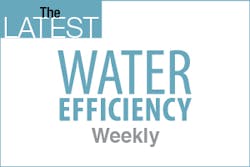Water quality is important to us all. Safe drinking water is easy to take for granted. But for the people of Flint, MI, the water situation is dire. About a year ago, Flint changed its water supply source from Lake Huron via Detroit’s water system to the Flint River. The move was called temporary, and was designed to cut costs while Flint was working to obtain Great Lakes water on its own. A slight change in acidity of the water source could be causing lead piping and solder connections to leach into the water—and it’s being blamed for elevating lead to unsafe levels.
Water quality is important to us all. Safe drinking water is easy to take for granted. But for the people of Flint, MI, the water situation is dire. About a year ago, Flint changed its water supply source from Lake Huron via Detroit's water system to the Flint River. The move was called temporary, and was designed to cut costs while Flint was working to obtain Great Lakes water on its own. A slight change in acidity of the water source could be causing lead piping and solder connections to leach into the water—and it's being blamed for elevating lead to unsafe levels. [text_ad] A host of conditions come with elevated lead levels. Kids and adults are getting sick. The people of Flint have filed a class-action suit claiming conditions like skin lesions, hair loss, memory loss, vision loss, high levels of lead in the blood, and depression and anxiety. It's gotten so bad that Flint Mayor Karen Weaver has declared the water issue a state of emergency, in order to seek additional funding. Elsewhere in water-quality news, the Denver Zoo recently switched their elephant habitat and will no longer have recycled water for the animals to drink. Originally, the habitat installed recycled water for the elephants, as it was thought to be more sustainable and environmentally friendly. Both zoo officials and veterinary staff continue to stand by their belief that the recycled water is safe because it meets the EPA's Clean Water Act standards for human consumption. But they decided to revisit the issue after hearing that elevated sodium levels in the recycled water could be killing off trees throughout Denver. These examples brings up interesting questions: Is this something the water professionals in Flint should have known beforehand? And did any of you experience similar events when changing your water source?
https://foresternetwork.com/wp-content/uploads/WE_bug_web.jpg
About the Author
David Rachford
David Rachford is the web editor for Forester Media.
Sign up for our eNewsletters
Get the latest news and updates

